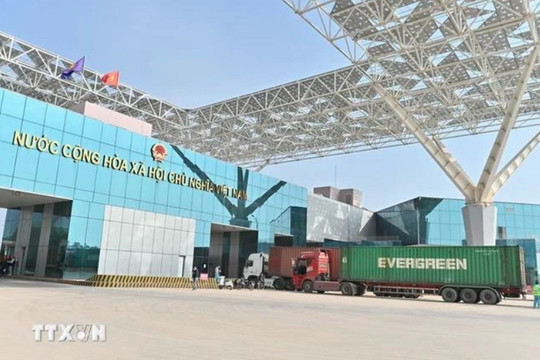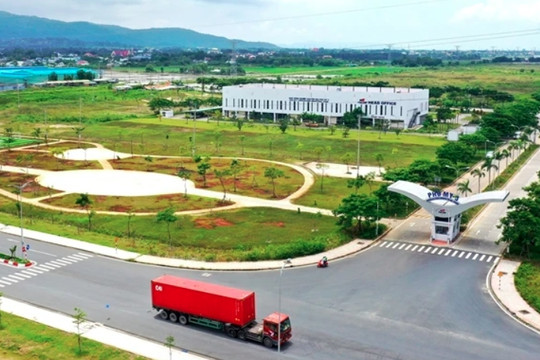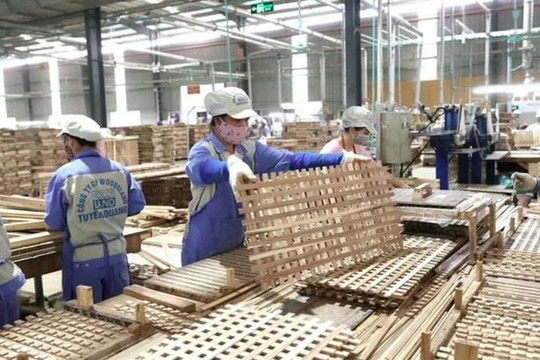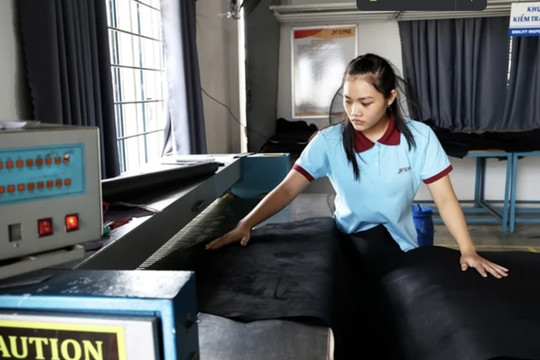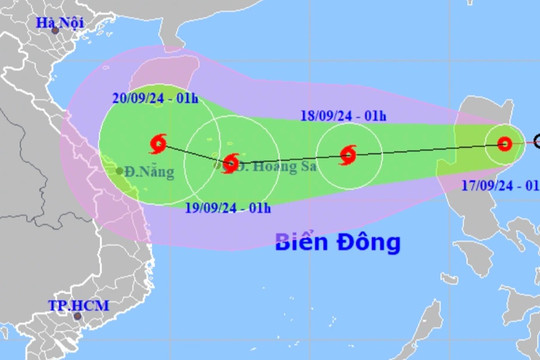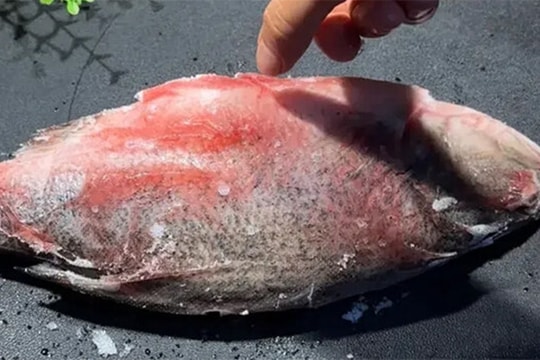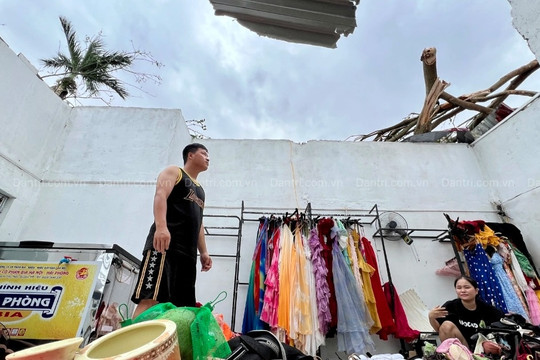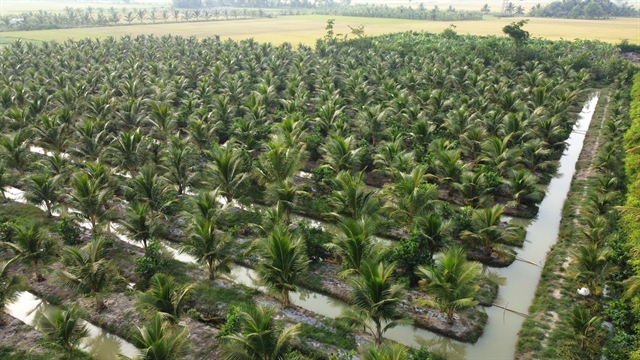 |
| A coconut grove in Trà Vinh Province’s Châu Thành District. — VNA/VNS Photo Thanh Hoà |
TRÀ VINH — Trà Vinh Province plans to expand its area under high-quality coconut varieties and create linkages between coconut farmers and processors to improve the latter’s incomes.
The Cửu Long (Mekong) Delta province has more than 27,350ha of coconut and is the country's second largest producer of coconut after neighbouring Bến Tre Province.
The orchards are mostly in Tiểu Cần, Càng Long, Cầu Kè, and Trà Cú districts, with around 5,100ha growing organic coconuts.
It aims to bring another 200ha under organic, global good agricultural practices (GlobalGAP) and other quality standards, according to the provincial Department of Agriculture and Rural Development.
Lê Văn Bá, a member of the Tuấn Hằng Agriculture Co-operative in Tiểu Cần District’s Tân Hoà Commune, said most local farmers growing organic coconuts are members of the co-operative.
“They are taught growing techniques and guaranteed sales at prices 3 - 5 per cent higher than in the market.”
Võ Quang Cường, deputy head of the Tiểu Cần District Bureau of Agriculture and Rural Development, said farmers are encouraged to adopt organic standards to increase coconut yields and quality and meet export requirements.
In Tiểu Cần, 2,740ha of its 5,800ha of coconuts are planted to organic standards.
Lê Văn Đông, deputy director of the provincial Department of Agriculture and Rural Development, said there are nine coconut growing areas with a total of 1,240ha eligible to apply for growing codes for exports to China.
A 150ha plantation in Cầu Kè District has already got an export code.
The province is soliciting investments in coconut processing.
Many coconut processing companies in Bến Tre Province have contracts with farmers in Trà Vinh through co-operatives to develop more than 2,000ha of organic nuts.
Sáp coconut
Trà Vinh is well-known for its specialty sáp coconut, which has a soft and thick pulp. Sáp means wax in Vietnamese.
The coconut is used mostly to make desserts like coconut shakes with milk, sugar and ice, and products such as candies, jams and cakes.
Lê Văn Hẳn, chairman of the provincial People’s Committee, said more than 100 products are made from sáp coconut, including 15 recognised under the country’s “One Commune – One Product” (OCOP) programme.
They are rated between three star and five star, the highest level.
Cầu Kè District has more than 1,100ha of the specialty nut, accounting for 92 per cent of the province’s sáp coconut area.
Companies and co-operatives buy it at VNĐ100,000 – 120,000 ($4-5) each.
Nguyễn Hoàng Khải, secretary of the Cầu Kè Party Committee, said the district aims to develop sáp coconut cultivation following the province’s zoning plan.
It is encouraging farmers to grow the variety using clean farming methods to increase value, he said.
To develop organic and sáp coconuts, the province has strengthened the linkages between farmers and processing companies in Bến Tre to expand cultivation.
Trà Vinh has implemented many programmes to support farmers seeking to tie up with processing companies to grow organic coconut and expand the area under the sáp variety.
It organised the 100-Year Sáp Coconut Tree Festival in Cầu Kè District at the end of last month to honour and promote the variety.
This variety has been grown in the district for 100 years and brings farmers high incomes.
A traditional mature sáp coconut tree can produce 120-150 nuts a year, but only 20-30 per cent have the soft, thick pulp that qualifies them as sáp while the rest have normal pulp.
Interestingly, it only produces this kind of flesh when grown in Cầu Kè District; elsewhere it has only normal flesh.
Trà Vinh University has created a variety of sáp coconut using in-vitro technique that ensures 75-80 per cent of its nuts qualify as sáp and can also be grown elsewhere.
In recent years more and more farmers in other areas have begun to grow sáp coconuts.
Kiên Nhu in Trà Vinh City’s Long Đức Ward turned his 5,000sq.m rice field into a sáp coconut orchard 10 years ago and has been earning 10 times higher profits since.
It fetches him VNĐ10 million (US$400) a month from the nuts and an additional income from selling citrus fruits and mangoes he intercrops.
The province targets having 1,500ha under sáp coconut by 2030, including 200ha grown to organic, VietGAP and GlobalGAP standards. — VNS




